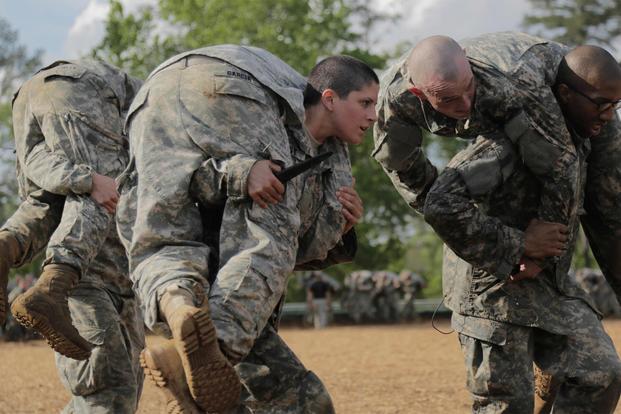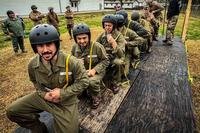Army scientists are outfitting soldiers at one of the service's hottest training bases with wearable sensors in an attempt to better predict heat-related injuries.
Researchers from the Army's Research Institute of Environmental Medicine recently began collecting data from more than 2,000 soldiers in Ranger, Airborne and Basic Combat Training at Fort Benning, Georgia, who volunteered to wear real-time physiological status monitors, or RT-PSMs.
The study, in coordination with Fort Benning's Martin Army Community Hospital, began after the service's Public Health Center said soldiers have reported 480 cases of heat illness since January; 219 of those cases occurred at Benning, according to a recent Army news release.
"We are collecting data on soldiers during hot-weather training to determine if those who develop heat illness possess a unique physiological profile compared to their peers who perform the same training activities but do not develop heat illness," said Mark Buller, one of the investigators and a research physiologist at the institute.
The RT-PSM is a chest harness that tracks soldiers' core and skin temperatures and heart rates as they train by using an Estimated Core Temperature, or ECTemp, algorithm incorporated into the harness. The algorithm uses mathematics to provide accurate estimates of core body temperature by analyzing heart-rate changes over time, said Buller, who developed the ECTemp.
In July, 31 soldiers from the 75th Ranger Regiment, all from diverse climates, wore the harnesses while completing the Ranger Assessment and Selection Program, or Rasp, at Benning -- a program consisting of five-mile runs, road marches and other strenuous activities. Researchers also outfitted 162 soldiers with the devices while they participated in land navigation training at the Officer Candidate School.
Researchers hope to complete the study by the end of this summer, the release states.
"Real-time monitoring allows us to compare the core temperature and heart rate data in soldiers who did not get heat illness to the ones who did," said Beth Beidleman, another research institute investigator involved in the study. "We have actually been able to capture data on individuals who have suffered heatstroke. If our analysis shows there are physiological differences between soldiers who developed heat illness versus the ones who did not, this information could help us find heat illness predictors and establish thresholds for what is considered dangerous during training."
-- Matthew Cox can be reached at matthew.cox@military.com.










